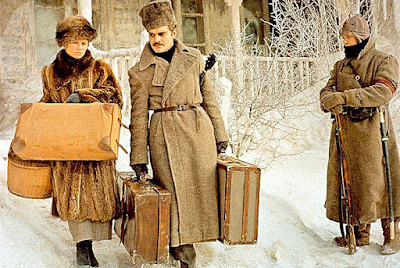Collage of Readers on Zoom
We had ten poets represented, five American, three British, and one each from Russia and Argentina. The only translated poems were those of Pasternak from Russian, and Borges from Spanish.
The poem chosen by Thomo, Rhapsody on a Windy Night, is from the 1939 book of poems by T. S. Eliot, Old Possum's Book of Practical Cats. Its presentation in modern times occurred when the book was turned into the 1981 musical Cats composed by Andrew Lloyd Webber. The most famous song in the musical was Memory, adapted from the Eliot poem with lyrics by the musical's director Trevor Nunn. Memory is sung primarily by the character Grizabella as a melancholic remembrance of her glamorous past, and as a plea for acceptance.
The enigmatic Jorge Luis Borges from Argentina is best known for his short stories in Ficciones and his essays on various subjects. Every reader will be transported by reading his short story The Library of Babel which begins:
The universe (which others call the Library) is composed of an indefinite, perhaps infinite number of hexagonal galleries. In the center of each gallery is a ventilation shaft, bounded by a low railing. From any hexagon one can see the floors above and below-one after another, endlessly.
But at this poetry session we tasted a poem of Borges in which he successively refines the concept of a tiger, having never seen one,
conjuring in my poem
is a tiger made of symbols and of shadows
– and thus
creates a fiction, not a living creature,
not one of those who wander on the earth.
The Other Tiger
The venerable Robert Frost who doesn’t like walls was about this very task of mending one. Each spring they find gaps from fallen boulders in the low stone walls between their houses and attempt to repair the gaps:
We keep the wall between us as we go.
To each the boulders that have fallen to each.
Robert Frost and a wall
Apparently the adage ‘Good fences make good neighbors’ urges them on to complete a task, which is actually redundant to the aim of trespassing for there are no cows to wander across. Frost philosophically reminds the reader
Before I built a wall I’d ask to know
What I was walling in or walling out,
Boris Pasternak, whose poems we’ve read before, reappeared when KumKum read a poem out of his famous novel, Doctor Zhivago. The poem is titled Parting and we are reminded of the line from our recent Shakespeare session when Juliet confides to her lover Romeo that
… Parting is such sweet sorrow
That I shall say “Good night” till it be morrow.
But the occasion of Pasternak’s poem is the final parting, out of many in the novel, between Lara and Yury, the doctor, who also writes poems; he is left alone in the deserted house and muses –
In years of strife, in times which were
Unthinkable to live in,
Upon a wave of destiny
To him she had been driven,
…
And now, so suddenly, she'd left.
What power overrode them?
The last parting of Yuri and Lara in Doctor Zhivago








